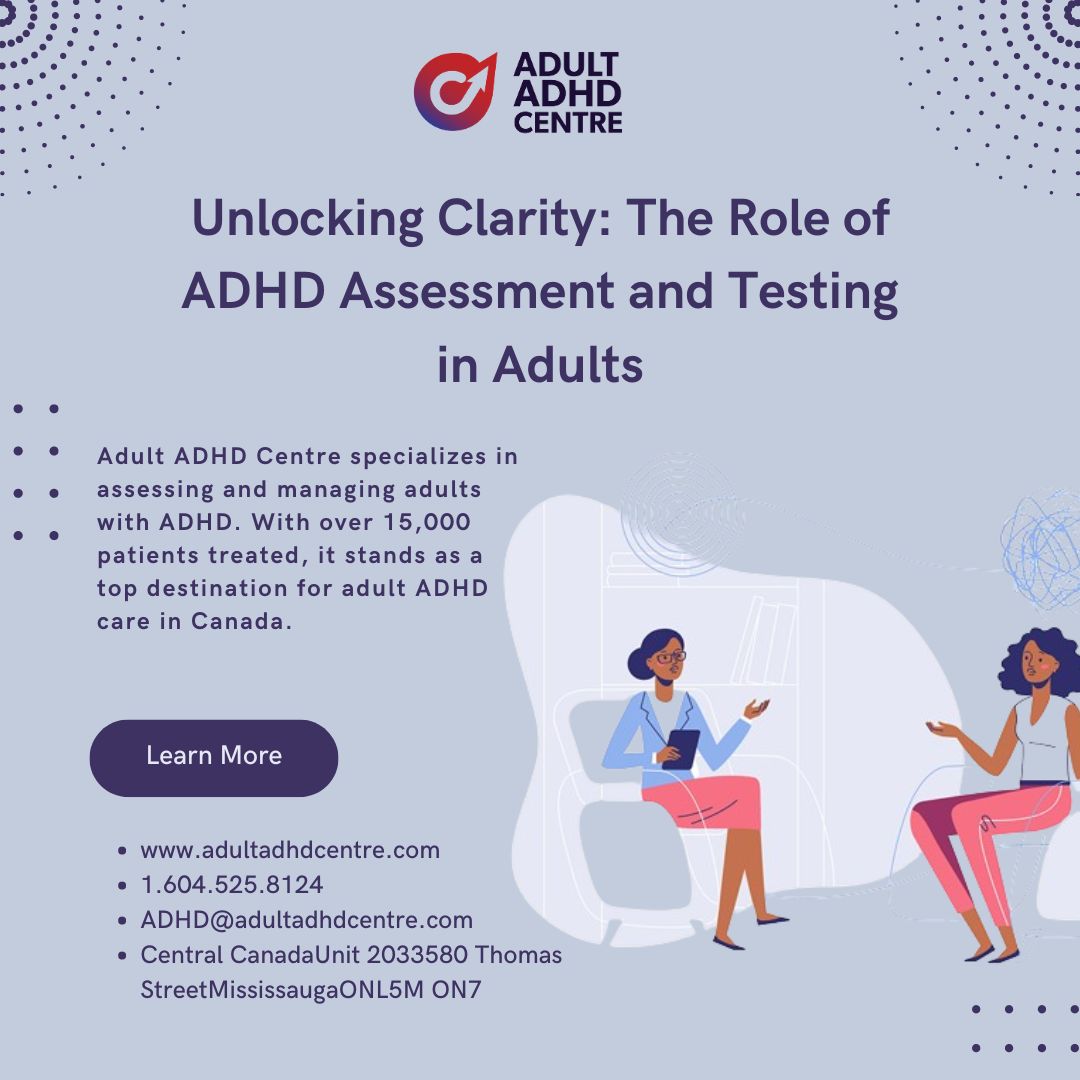
ADHD assessment in adults plays a critical role in diagnosing Attention Deficit Hyperactivity Disorder (ADHD), a condition often overlooked in adulthood. This process involves evaluating symptoms through structured clinical interviews and standardized testing. Accurate assessment is crucial as it guides appropriate interventions and support mechanisms.
How ADHD Assessment Works
An ADHD assessment typically begins with a detailed personal history to understand developmental, educational, and medical backgrounds. This is followed by a series of psychological tests designed to measure attention span, impulsivity, and behavioral patterns. Professionals use these insights to distinguish ADHD symptoms from other potential disorders.
Key Components of an Effective ADHD Test for Adults
An effective ADHD test for adults should cover a comprehensive range of cognitive and behavioral aspects. It includes tests for executive functioning, memory, attention, and impulse control. These components help in pinpointing the specific characteristics of ADHD, distinguishing it from other mental health conditions.
Common Symptoms Addressed in ADHD Tests for Adults
Adult ADHD tests focus on symptoms such as chronic procrastination, difficulty in task completion, problems with time management, and emotional dysregulation. Recognizing these symptoms is essential for accurate diagnosis and subsequently, the right therapeutic approach.
The Benefits of Undergoing ADHD Testing as an Adult
Undergoing ADHD testing can be transformative for adults who have struggled with undiagnosed symptoms for years. Diagnosis can lead to a better understanding of their challenges and unlock access to targeted treatments and accommodations that enhance personal and professional life.
ADHD Assessment Techniques and Their Application
Professionals employ various assessment techniques, including self-report scales, informant reports, and objective measures such as continuous performance tests. These tools collectively provide a multi-faceted view of an individual’s functioning, essential for a comprehensive assessment.
Choosing the Right Professional for ADHD Assessment
Selecting the right healthcare provider is critical for a successful ADHD assessment. Look for a licensed psychologist or psychiatrist with experience in adult ADHD. Their expertise ensures that the assessment is thorough and the diagnosis is accurate.
How Technology Enhances ADHD Assessments
Advancements in digital health have introduced new tools that enhance the precision of ADHD assessments. Software applications can now track behavior patterns over time, and online ADHD tests offer preliminary screening that can suggest the need for a professional evaluation.
Addressing the Challenges of ADHD Diagnosis in Adults
Diagnosing ADHD in adults comes with challenges, such as symptom overlap with other disorders and the complexity of adult life responsibilities. Effective diagnosis requires a nuanced approach that considers the unique presentation of ADHD symptoms in adults.
Integrating ADHD Testing Results into Daily Life
After receiving an ADHD diagnosis, integrating the insights from testing into daily life is vital. This might involve working with a therapist to develop coping strategies, using medication to manage symptoms, or employing organizational tools to improve day-to-day functioning.
The Role of Support Systems Post-ADHD Diagnosis
Following an ADHD diagnosis, establishing a strong support system is crucial. Support groups, therapy, and family involvement can provide encouragement and understanding, which are instrumental in managing ADHD.
Legal Rights and Workplace Accommodations for Adults with ADHD
Understanding the legal rights and available workplace accommodations is important for adults diagnosed with ADHD. Laws such as the Americans with Disabilities Act (ADA) may offer protections and require employers to provide reasonable accommodations.
Continuing Education and ADHD Awareness
Educating oneself about ADHD is crucial after diagnosis. Awareness and understanding of the disorder can empower individuals to seek the best treatment and advocate for themselves in personal and professional settings.
Future Directions in ADHD Assessment and Testing
The future of ADHD assessment and testing in adults is likely to see more personalized approaches. Innovations in genomics and biomarkers, along with advancements in technology, may offer more precise diagnostics and tailored treatment plans.
The Impact of ADHD Diagnosis on Personal Development
A formal ADHD diagnosis can profoundly impact personal development. It allows individuals to reframe past difficulties, recognize their strengths, and access strategies that play to their unique capabilities. This understanding can lead to significant personal growth and improved quality of life.
By thoroughly understanding and utilizing ADHD assessments and tests, adults can navigate their symptoms with greater awareness and support, leading to enhanced life management and fulfillment.
